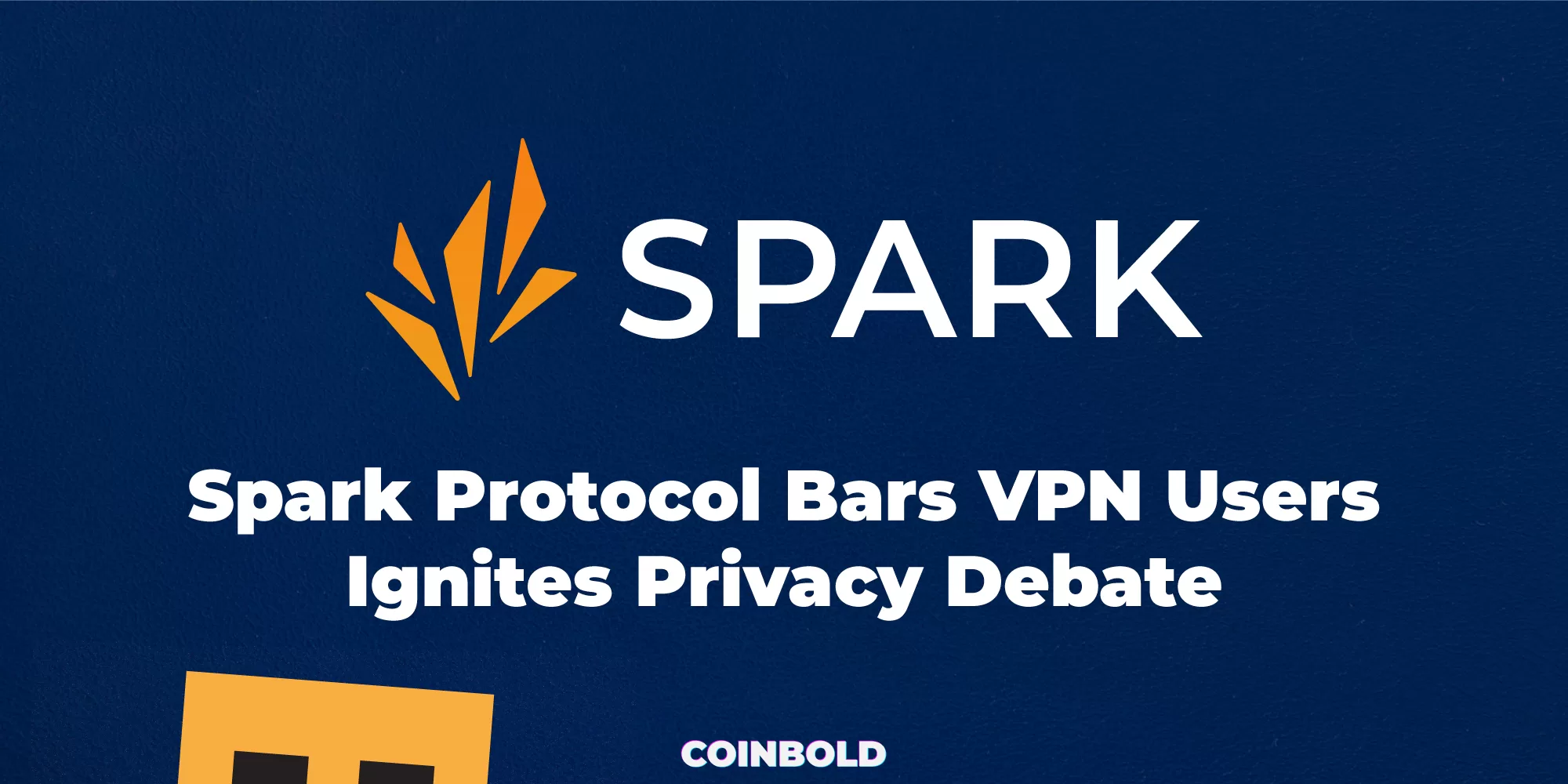In a surprising twist that has sent ripples through the decentralized finance (DeFi) community, MakerDAO, a pioneering DeFi protocol, has stirred controversy with its recent decision regarding the Spark protocol. This move, aimed at safeguarding its services and adhering to geographic restrictions, has sparked a heated debate on user privacy and decentralization.
I rarely get as disgusted as I am right now with MakerDAO’s Spark Protocol.
It’s one thing to block US residents.
It’s a whole other thing to block anyone in the entire world who is using a VPN for privacy.
This isn’t just govt cuckery.
This is an actual war on privacy. pic.twitter.com/dUbsMeVzbZ
— Chris Blec (@ChrisBlec) August 6, 2023
Spark Protocol’s Bold Decision
The MakerDAO community was taken aback when news broke about the suspension of VPN (Virtual Private Network) users from accessing the newly launched lending platform under the Spark protocol. Users attempting to connect through VPNs were greeted with a stark message on the protocol’s website: “Accessing this website via VPN is not allowed.” This stringent measure was not without prior warning, as the protocol’s updated terms of service had cautioned against VPN usage, underlining the possibility of permanent user bans.
Curbing Access Within the US
The driving force behind this decision appears to be a strategic move by MakerDAO to curtail access to the Spark protocol’s services within the United States. The protocol’s website leaves no room for ambiguity, explicitly stating in its footer that accessing the Spark Protocol is prohibited in the USA. This intentional move to limit access has ignited passionate discussions within the cryptocurrency community.
Privacy Advocates Express Outrage
Critics of MakerDAO’s decision, including prominent DeFi personality Chris Blec, have voiced strong opposition. Blec took to social media to express his deep discontent, condemning the protocol for not only blocking US residents but for also imposing restrictions on individuals worldwide who use VPNs to maintain their online privacy. He labeled this move as an outright assault on the right to privacy, sparking a chorus of agreement from those concerned about personal freedoms in the digital realm.
Balancing Decentralization and Geographical Restrictions
The MakerDAO community finds itself at an interesting crossroads, as this decision contradicts the protocol’s historical commitment to decentralization and inclusivity. MakerDAO has long been a vanguard of DeFi, promoting open access and financial sovereignty. However, the imposition of restrictions based on geographic locations has left some questioning the protocol’s commitment to these principles.
The Essence of Spark Protocol
At its core, the Spark protocol serves as a dynamic liquidity marketplace, facilitating the lending and borrowing of DAI using various crypto assets. Launched in May with the aim of providing financing options through its USD-pegged stablecoin, DAI, MakerDAO sought to democratize access to financial services and create a more inclusive financial ecosystem.
As the MakerDAO community grapples with the implications of its controversial move, the broader crypto community watches closely. This debate raises fundamental questions about the balance between decentralization, privacy, and regulatory compliance. The outcome of this discussion will undoubtedly shape the future direction of MakerDAO, DeFi protocols, and the evolving landscape of digital finance as a whole.

